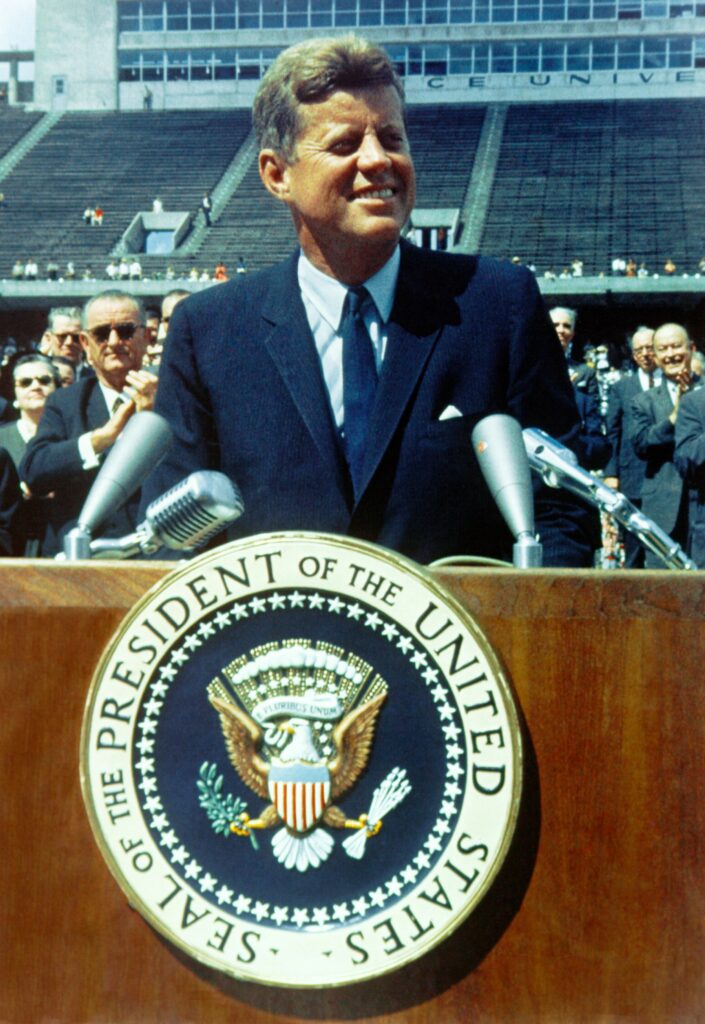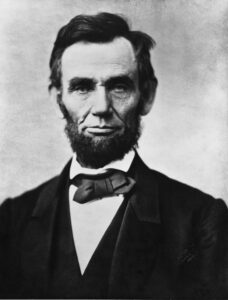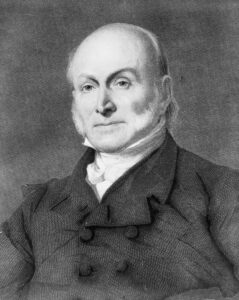The Best Leadership Quotes and How to Apply Them
[Editor’s Note: Today’s article in a guest post from Jesse Cramer who is an engineer and an avid reader/writer. He runs the blog The Best Interest, which started as his creative outlet but gained recognition for explaining complex personal finance ideas in simple terms. Jesse discusses money basics, like your net worth targets by age or the most common unknowns in personal finance. He writes about successful behavioral concepts, like the Fulfillment Curve or learning the biggest lesson from the COVID-19 pandemic. Habits matter too. Developing the habit of tracking every expense with YNAB helped boost his savings rate to over 60% in 2019.]
*********************************************************
Leadership is a famously difficult duty.
Whether you want to become the big shot or you’re already the boss, you’ve got work ahead of you. Let’s look at our most famous leaders and their motivating guidance. These inspiring leadership quotes are sure to illuminate your road ahead.
Leadership is Learning
While leadership styles vary, the core characteristics of effective leadership do not. For example, many famous leaders place an extra emphasis on education.
“Leadership and learning are indispensable to each other.” -John F. Kennedy
Perhaps this quote is so often recited because JFK didn’t say it. He wrote it and was scheduled to say it during a speech on November 22, 1963. That speech never came, and the rest is history.

But Kennedy’s words are alive and well. Leadership often takes place at the cutting edge, as a new territory gets explored. Launching into new space requires bountiful curiosity and the ability to learn.
Just think about it! In 1900, an engineer said, “Now Abel, I want you to dismount your horse and give this motor carriage a try. Mind the bumps!”
Sixty years later, that same kind of engineer said, “Now Neil, we’re gonna strap you real tight to this aluminum tube full of explosives. But don’t worry. We’ve already got the coordinates for the Moon typed into the GPS.”
Wait…that’s not how GPS works…
Join the Passive Investors CircleThe Audacity to Learn
Enough digression! The point is, it takes major league audacity–from individuals, organizations, or entire societies–to make that kind of technological leap in 60 years. Innovation distinguishes the lead group from those behind.
JFK would go on to write that “ignorance and misinformation can handicap…progress.” It’s now 57 years after he said that, but I’d say he hit the nail on the head. The importance of learning is that it acts as armor against ignorance and allows us to discern real facts from fake. Learning yields progress for the individual and the group.
Knowledge is a magical resource. Why? It can be given away ad infinitum, yet still, be retained by the owner. Leaders are generous in this way. Leaders want to learn and want others to understand.
It’s the main reason I love writing detailed breakdowns of complex topics (e.g., what happened during the Big Short, anyway?)
When I ask you to envision a true leader, is he enlightened or in the dark? Does he fight adversity with wisdom or with ignorance? Does he let his intellect guide him? Is he a slave to emotion?
The fact is, leaders are always willing to learn. A curious and open mind is what earns the respect of their followers.
“It is necessary for us to learn from others’ mistakes. You will not live long enough to make them all yourself.”— Admiral Hyman G. Rickover
This quote is impressive because of its simplicity. It’s just basic math and the logistics that follow. There have been hundreds of generations of humans before you. Those billions of people have screwed up in various ways–we all know it happens. You can choose to use their mistakes as a starting point, or you can put on blinders.
If you want to lead–to be at the cutting edge–then you cannot afford to repeat the mistakes that others have already made. The cutting edge has no room for error.
Mistakes –> Learning
At best, repeating previous mistakes is a waste of time. At worst…well, I’ll leave it up to your imagination.
You’ve got to learn from others’ mistakes. The keyword is learn. This leadership quote is just like that saying, “Those who do not learn from their mistakes are doomed to repeat them.”
If you’re scientifically inclined, you could even think about this quote through the lens of natural selection. Successes are selected, whereas failures are not. Therefore, avoid the behaviors that lead to failure. If not, they might lead to failure again, and you might be the one that ends up not being selected.
“I am still learning.” -Michelangelo
I don’t know if Michelangelo was a leader of people. But he was a leader of culture, and amazingly still is 450 years after his death.

Perhaps you know him by his sculpture? He’s known for the beautiful range of work that is still on display across the internet and in museums.
It’s more likely that you know Michelangelo because of the Sistine Chapel. Not only is it beautiful, but it’s also 133 by 46 feet in size: one man, four years, and one wonder of the world.
He was also an illustrator, architect, and poet. Michelangelo (along with Leonardo da Vinci) is the reason for the term “Renaissance man.” Michelangelo wasn’t a Renaissance man – he was the Renaissance man. That’s him!
The Best Still Get Better
I don’t mean to worship the guy, but I want to properly explain just how talented, experienced, and learned Michelangelo was. When he says, “I am still learning,” it carries extra weight. It’s like the leadership quotes you might see from world-class athletes who say, “I still practice.”
Michelangelo likely became who he was because he was always learning. It only makes sense that he maintained that attitude even after he “reached the top.” That’s a leadership quality worth emulating.
Don’t Miss Any Updates. Each week I’ll send you advice on how to reach financial independence with passive income from real estate.
Sign up for my newsletterLeadership is Action
While leaders shouldn’t be rash, they also can’t afford to be indecisive. Leaders lead. Leaders act.
“The pessimist complains about the wind. The optimist expects it to change. The leader adjusts the sails.” -John Maxwell
This one has that Goldilocks “magic of three” vibe to it. You don’t want to be too “this” or too “that.” You’ve got to be just right. The more time I spend in this world, the more I think this quote is a home run.
Talk is easy. Complaining about a situation or expressing hope for change is low effort. Anyone can do it, and just about everyone does do it. Leadership, however, is not a low effort task.
Leadership requires action. A leader identifies when the winds are changing, understands how the new gusts affect them, and works towards saving the boat. Heck, sometimes those winds even propel the ship faster than ever before!
When Life Throws You Lemons
I talked about this idea in one of my first articles after the COVID-19 pandemic came to American shores. Take what life gives you and prepare for what’s next.
The Stockdale Paradox would tell us that you have to balance hope with the stern ability to face present-day facts. That is Stockdale’s version of “adjusting the sails.”
I’m also reminded of the story of two Chicago programmers working on solving problems for apartments.com.
After many late nights debugging code, they realized that their primary problem had changed. Apartment searches were easy compared to the issues they were having with quality late-night take-out food.
As funny as that problem is, it’s what inspired Matt Maloney and Mike Evans to start GrubHub. Their winds changed, and they adjusted their sails.
“Anyone can hold the helm when the sea is calm.” –Publilius Syrus
Another boat metaphor? I know, I know. But it makes sense. Boats need captains. Good boats need good captains. And good captains are good leaders.
My youth baseball team had a captain that became a complete tyrant at the slightest hint of unrest. He found it easy to be our “leader” when everything was going according to his plan. That’s because the sea was calm. But a ripple of discord would rip his hands from the helm as he lost his cool. That’s not real leadership.
When the Going Gets Tough
A good leader, on the other hand, stays in control even when the surf gets choppy. And that means that leaders sometimes make tough decisions i.e., when the going gets tough, the tough get going.
As you see your star rise into a leadership role, remember that it’s often these challenging situations that will define you as a leader. A true leader is forged in the heat of difficulty.
“Whatever you are, be a good one.” –Abraham Lincoln
If the world was full of middle managers, then who would make the coffee?

Not everyone can be a leader at all times. There’s another oft-repeated quote along these lines: “a good leader can be a good follower,” or “a good leader knows when to follow.”
Honest Abe is highlighting this idea. Even if you find yourself in a “follower” position, be good at what you do. That’s what a leader does.
Show Me Your Chops!
Just imagine someone who would try to convince you, “I will only put effort into any team in my life if I’m the unquestioned leader.”
One of the many natural responses I’d have is, “Do you have the chops? Where’s the proof?” In other words: good leaders put in the legwork.
Be good at the entry-level position until you’re given small responsibilities. Be good at taking notes until you start running the meeting. Work your butt off on the JV team until they have no choice but promote you to varsity.
There will be many steps in your journey, and you will not be at the front of the line for most of them.
Leadership is About Others
What good is a general with no soldiers? A leader takes people and lets them do the most extraordinary things. A good leader is nothing without the people who follow their lead.
“Leadership is the art of giving people a platform for spreading ideas that work.” –Seth Godin
Leadership–especially in modern times–involves the network effect. The capability of everyone far outweighs the ability of a single person.
Great leaders attract great people, and then let those great people spread their wings (and their ideas). One of my first bosses micromanaged me through every task–even mundane chores like ordering paper supplies. I’ll never forget that feeling. Any potential I had was cramped inside a tiny cage.
A genuine leader props up those around them. Seth Godin’s writing is all about unlocking people’s potential. That’s what this leadership quote is all about.
“You take people as far as they will go, not as far as you would like them to go.” –Jeanette Rankin
Of all the leadership quotes here, Jeanette Rankin’s reminds me of “the single most important trait” for a person to have (that’s a Gary Vaynerchuk claim). What trait? Emotional intelligence.
Emotional intelligence involves the ability to control and express one’s emotions but also to “handle interpersonal relationships judiciously and empathetically.” The second half of this definition is a prerequisite of good leadership, according to Rankin.
Join the Passive Investors CircleWhen to Pump the Brakes
That is one of the many challenges of leadership. You cannot drive your team to exhaustion. But you can’t be so soft as to under-perform the team’s expectations. People feel satisfaction from exploring their limits, but hostility multiplies when those limits aren’t respected.
The emotionally intelligent leader is thinking about the personal development of those around them.
“A leader is best when people barely know he exists…when his work is done, his aim fulfilled, they will all say: We did it ourselves.” -Lao Tzu
A young child writes out the entire alphabet for the first time and proudly exclaims, “I did it!”
Of course, we know that child got lots of help across the spectrum of his little life. Timmy didn’t synthesize the alphabet on his own accord. He was taught, he was led, and he had weeks of error-filled practice.
But as good parents and teachers, we want our children to know that they are capable on their own. You did it, Timmy!
From Small Kids to Muscled Men
True leaders empower those around them to become better. They share recognition with their team. It’s not just with children. You’ve seen this before–it happens in every single sports interview ever.
“Well Jim, I couldn’t have done it without the other guys out there. They did all the hard work in the trenches. They set the pins up, all I had to do was knock them down. It was a team effort.”

While I’m tired of every sports interview containing these same platitudes, I understand why they’re (over) used. Deferring the credit to your team is part of being a leader.
That’s why I just want to stay focused on the fundamentals. I’ve got to cross my T’s and dot the I’s. I don’t want to get ahead of myself. I’m taking these best leadership quotes one at a time.
Leadership is Ethical
Above all else, leaders do the right thing, especially when it’s also the hard thing.
“We are what we pretend to be, so we must be careful about what we pretend to be.” —Kurt Vonnegut
Out of all the leadership quotes here, this one stopped me in my tracks.
Kurt Vonnegut is suggesting that our personalities are not innate, but rather are learned behaviors formed by habit. And those formative actions are, essentially, small performances of pretending.
We pretend and pretend and pretend, and suddenly it doesn’t quite feel like pretend anymore. It just is. We become what we’ve pretended to be.
We aren’t born mean, friendly, timid, or courageous. Instead, we’re born as the proverbial lump of clay, waiting to be molded. As we mature, the clay is formed in a certain direction via the actions we choose to take.
But even adults who claim to be “stuck in their ways” still possess that malleability. They are merely pretending to be stubborn old dogs. They’re pretending refusal to learn new tricks.
That’s Not Really Who I Am
As a leader, you might face a situation where you feel like acting like a tyrant. Of course, you tell yourself, you’re not a tyrant; you’re just acting like one in this situation. This is the exact scenario that Vonnegut would caution against. It’s all too easy for acting to supplant reality. Life is too short–memento mori–to pretend to be a tyrant.
We can view this leadership quote from another point of view. Namely, there’s the version of you that you see, but there’s also the version of you that everyone else sees.
If you want to lead, you’ve got to show everyone else that you’re a leader. It might not come naturally to you, and that’s ok. Try to take the actions that a good leader would take. While you might see leadership potential inside you, you’ve got to make sure that others see it too.
Even if it feels like pretend at first, you’ll soon be a true leader.
“Management is doing things right; leadership is doing the right thing.” –Peter F. Drucker
Who’s a leader in your life right now? For many, the answer could be your manager at work. But Peter Drucker is asking us to consider the fact that management and leadership can be exclusive of one another. While the two are often intertwined, there’s an important distinction.
Management is procedural. It’s about spellchecking your essay. It’s ensuring that the cogs are meshing as expected, so the whole machine functions with efficiency. Management considers the “resource” in “human resources.”
Leadership is moral. Leaders look for meaning in the essay. They consider the cogs as they exist outside of the machine, perhaps even calling into question the machine itself. Leaders put the human first.
Don’t Miss Any Updates. Each week I’ll send you advice on how to reach financial independence with passive income from real estate.
Sign up for my newsletterSeparate “Management” from “Leadership”
Perhaps you’re looking for a promotion at work. I think it’s important to understand the difference between effective management and effective leadership.
It’s certainly easier to become a manager if you’re already seen as a leader, just as it’s easier to share your leadership skills if you’re given a managerial position. But the two should still be seen as mutually exclusive. It’s possible–and impressive!–to become a leader without being any sort of manager.
So use this leadership quote to ask yourself, “Leadership or management…which role are you truly aiming for?”
“The pressure of adversity does not affect the mind of the brave man . . . It is more powerful than external circumstances.”— Seneca
Seneca is considered one of the original Stoics. Just like all things hipster, stoicism is back in style. And why shouldn’t stoicism be popular?! This leadership quote is the perfect example of how stoicism promotes the same mindsets that we associate with effective figureheads.
A good leader–whether man or woman, Mr. Seneca–does not let adverse conditions harm their psyche. A leader is a person who faces disaster with a steely gaze and an iron will.
We’ve seen this countless times in history. Why are Winston Churchill and Abraham Lincoln considered timeless leaders? Mainly for their calm decision-making during embattled eras.
Why are Martin Luther King Jr. and Mahatma Gandhi still revered civil rights activists? Because they let their moral compass guide them, even as their rulers (managers, not necessarily leaders) tried to hinder those paths. Societal pressure was no match for their mindset.
But Leaders Aren’t Perfect
Churchill, Lincoln, King, and Gandhi were all far from perfect, by the way. Leaders aren’t perfect. Who is? I know the separation of leadership from faultlessness is something I’ve struggled with. Perhaps you have too.
How can I be a leader if I don’t have all the answers, don’t have all the experience, don’t have all the skills? While knowledge and experience are certainly important, there will always be a new situation to make you feel like a foolish greenhorn. It takes bravery to grab the wheel despite your flaws and confidently point your boat into the crest of the wave.
Honorable Mention
There are a few more I couldn’t leave off the list
- “Knowing is not enough; we must apply. Willing is not enough; we must do.” —Johann Wolfgang von Goethe, who loved semi-colons.
- “Do not go where the path may lead, go instead where there is no path and leave a trail.” —Ralph Waldo Emerson
- “In the end, it is important to remember that we cannot become what we need to be by remaining what we are.” —Max de Pree
- “The mind must be trained, rather than the memory.” —Eleanor Roosevelt
- “My job is not to be easy on people. My job is to make them better.” —Steve Jobs
- “Do what you can, with what you have, where you are.” —Theodore Roosevelt
- “The greatest leader is not necessarily the one who does the greatest things. He is the one that gets the people to do the greatest things.” —Ronald Reagan
- “Effective leaders allow great people to do the work they were born to do.” —Warren Bennis
- “Face reality as it is, not as it was or as you wish it to be” —Jack Welch
- “The challenge of leadership is to be strong, but not rude; kind, but not weak; bold, but not bully; thoughtful, but not lazy; humble, but not timid; proud, but not arrogant; have humor, but without folly.” —Jim Rohn
- “No person will make a great business who wants to do it all himself or get all the credit.” —Andrew Carnegie
Lead On!

While I’m sure there are dozens of worthwhile leadership qualities–and even more worthy leadership quotes–I think a focus on learning, action, people, and ethics will give you the foundation to be an effective leader.
It’s just like John Quincy Adams said:
“If your actions inspire others to dream more, learn more, do more and become more, you are a leader.”
I trust that today’s leadership quotes left you with a little more inspiration than when you started.
Lead on!
This article originally appeared on Your Money Geek and has been republished with permission.


